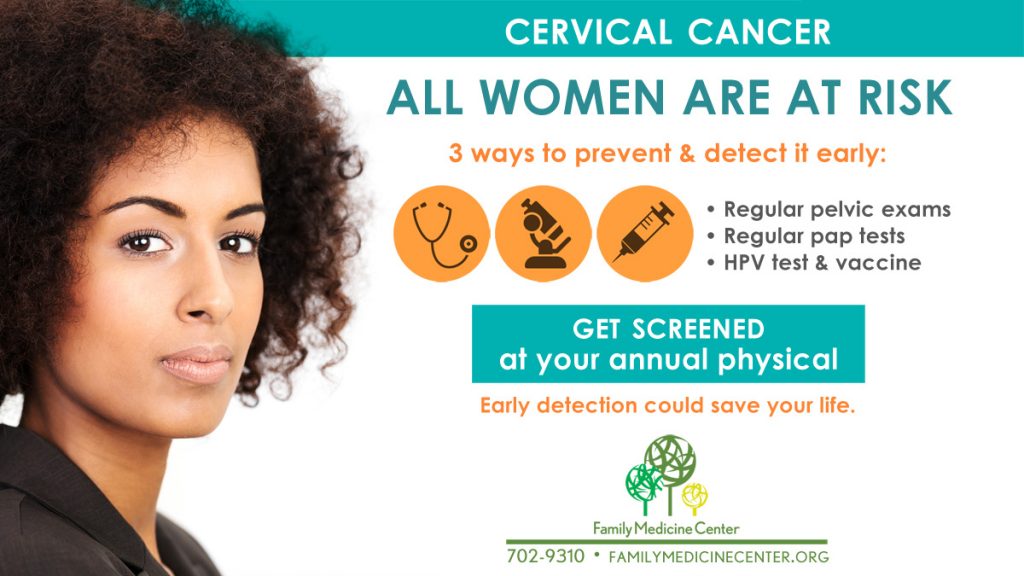What is Cervical Cancer
Cervical cancer is cancer that starts in the cervix, the lower, narrow part of the uterus (womb). Most cervical cancers are caused by the human papillomavirus (HPV). Cervical cancer is the easiest gynecological cancer to prevent with regular screening tests and vaccination. It is also very curable when found and treated early.
Q: Who gets cervical cancer?
A: Each year, about 12,000 women in the United States get cervical cancer. Cervical cancer happens most often in women 30 years or older, but all women are at risk.
Q: What causes cervical cancer?
A: Most cases of cervical cancer are caused by a high-risk type of HPV. HPV is a virus that is passed from person to person through genital contact, such as vaginal, anal, or oral sex. If the HPV infection does not go away on its own, it may cause cervical cancer over time. Other things may increase the risk of developing cancer following a high-risk HPV infection.
These other things include:
• Smoking
• Having HIV or reduced immunity
• Taking birth control pills for a long time (more than five years)
• Having given birth to three or more children
Q: What are the symptoms of cervical cancer?
A: You may not notice any signs or symptoms of cervical cancer. Signs of advanced cervical cancer may include bleeding or discharge from the vagina. These symptoms may not be caused by cervical cancer, but the only way to be sure is to see your doctor.
Q: How do I find out if I have cervical cancer?
A: Women should start getting screened at age 21. You can get a Pap test to look for changes in cervical cells that could become cancerous if not treated. If the Pap test finds major changes in the cells of the cervix, your doctor may suggest more tests to look for cancer. If you are between 30 and 65 years old, you can also get an HPV test with your Pap test to see if you have HPV.
Q: How often do I need to be screened for cervical cancer?
A: How often you need to be screened depends on your age and health history. Talk with your doctor about what is best for you.
Most women can follow these guidelines:
• If you are between 21 and 29, you should get a Pap test every three years.
• If you are between 30 and 64, you should get a Pap test and HPV test together every five years or a Pap test alone every three years.
• If you are 65 or older, ask your doctor if you can stop having Pap tests
Q: What can I do to prevent cervical cancer?
A: You can lower your risk of getting cervical cancer with the following steps. The steps work best when used together. No single step can protect you from cervical cancer.
The best ways to prevent cervical cancer include:
• Get an HPV vaccine (if you are 26 or younger). Two vaccines — Cervarix and Gardasil — protect girls and young women against the types of HPV that cause most cervical cancers. The Gardasil vaccine is also recommended for boys who are 11 or 12 years old. Both vaccines are licensed, safe, and effective.
• Get regular Pap tests. Regular Pap tests help your doctor find and treat any changing cells before they turn into cancer. Women who have had the HPV vaccine still need to have regular Pap tests.
• Be monogamous. Having sex with just one partner can lower your risk. That means that you only have sex with each other and no one else.
• Use condoms. The best way to prevent any sexually transmitted infection (STI), including HPV, is to not have vaginal, oral, or anal sex. If you do have vaginal, anal, or oral sex, protect yourself with a condom every time. Research shows that condom use can lower your risk of getting cervical cancer when used correctly and every time you have vaginal, anal, or oral sex.
Source: Office on Women’s Health in the Department of Health and Human Services

